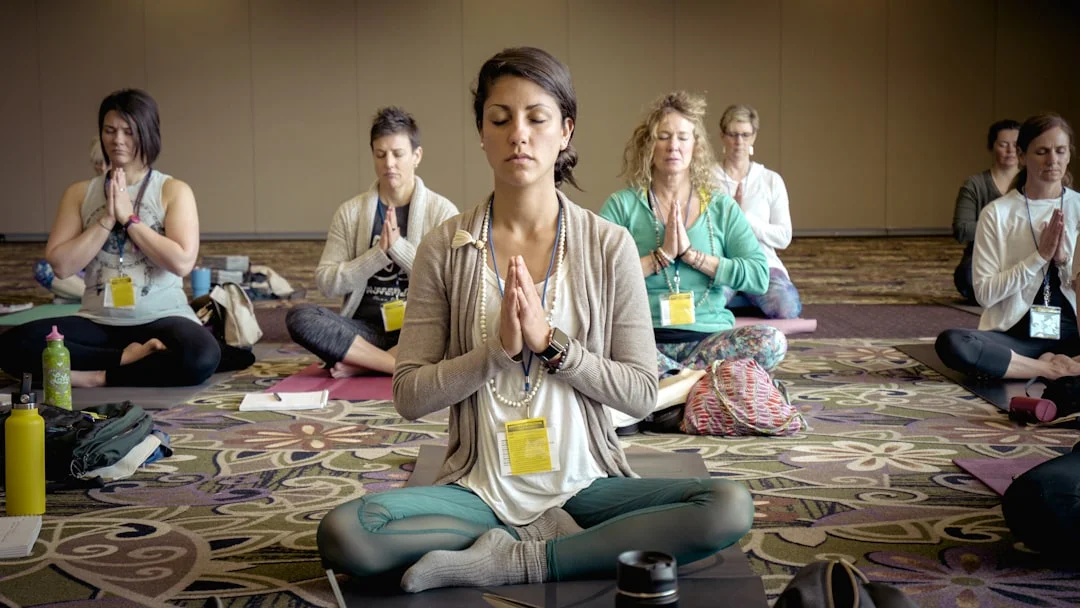Estimated Reading Time: 6 minutes
Estimated Reading Time: 6 minutes
LLfe, it seems, has become a whirlwind.
We’re constantly bombarded with information, responsibilities, and the relentless pressure to “do more.” But what if the key to a happier, healthier life wasn’t about *doing* more, but about *being* more?
Learning how to live more mindfully every day is not just a trend; it’s a powerful practice that can fundamentally change your relationship with the world and with yourself.
In this guide, we’ll explore practical ways to weave mindfulness into the fabric of your daily life, transforming stress into serenity, chaos into calm, and hurried moments into mindful ones.
For me, it started with a simple realization: I was missing my life.
I’d rush through mornings, barely tasting my coffee, and spend my days caught up in worries about the future or regrets about the past.
Evenings were a blur of exhaustion and screen time. I wasn’t *present*.
This realization became the catalyst for my journey towards mindfulness, and it’s a journey I’m excited to share with you.
Before we dive into the “how,” let’s clarify the “what.” Mindfulness, at its core, is about paying attention to the present moment without judgment.
It’s about observing your thoughts, feelings, and sensations as they arise, without getting carried away by them.
It’s about being fully present in whatever you’re doing, whether it’s washing dishes, eating a meal, or having a conversation.
It’s about cultivating a non-reactive awareness, which is incredibly powerful.
Consider this simple analogy: Imagine your thoughts and emotions as clouds passing in the sky.
Mindfulness is like being the clear, open sky, allowing the clouds to come and go without getting consumed by them.
You’re not trying to stop the clouds; you’re simply observing their passage.
The morning sets the tone for the entire day.
Instead of immediately reaching for your phone or rushing to your to-do list, consider these mindful morning rituals to cultivate a calmer start:
These practices don’t have to be time-consuming. Even 5-10 minutes can make a significant difference in how you feel.
How to live more mindfully every day isn’t just about morning routines; it’s about bringing mindfulness into every aspect of your life.
This takes practice, but the rewards are immeasurable. Try these techniques:
These simple adjustments can dramatically impact your day-to-day experience. One of my favorite techniques is mindful handwashing.
It forces me to slow down, focus on the sensation of the water and soap, and be present for that brief moment.
How to live more mindfully every day also involves navigating the inevitable waves of difficult emotions.
Mindfulness isn’t about suppressing or eliminating negative feelings; it’s about acknowledging them without judgment.
When you experience sadness, anger, or anxiety, try these techniques:
This approach is not always easy, but with consistent practice, you’ll develop a greater capacity to navigate difficult emotions with resilience and grace.
The benefits of learning how to live more mindfully every day extend far beyond simply feeling calmer.
Research consistently shows that mindfulness practice can:
Learning how to live more mindfully every day isn’t always smooth sailing.
There will be days when your mind is racing, when you feel too busy or distracted to practice. Here’s how to stay on track:
Remember, it’s about progress, not perfection. Every mindful moment counts, no matter how small.
Let me share a quick example from my own life. I used to struggle with work-related anxiety, especially during deadlines.
Implementing mindfulness into my daily routine – even just 10 minutes of meditation in the morning – completely changed the way I approached those stressful situations.
I started noticing that the anxious thoughts were just that: thoughts. And I had the power to observe them, not be consumed by them.
It made me significantly more productive and relaxed.
Case Study 1: Sarah, a busy marketing executive, struggled with chronic stress.
After incorporating mindfulness practices into her life, she reported a 40% reduction in stress levels and a significant improvement in her sleep quality within six months.
She achieved this by attending weekly meditation sessions and practicing mindful breathing during her commute.
Case Study 2: John, a college student, used mindfulness to manage his test anxiety.
By practicing mindful meditation before exams, he was able to stay calm and focused, improving his grades and overall academic performance.
He found he could tap into a sense of calm, instead of allowing panic to derail him.
I spoke with Dr. Emily Carter, a renowned mindfulness therapist, who emphasizes the power of small, consistent steps.
“The key to learning how to live more mindfully every day is consistency,” she explained.
“Even a few minutes of practice each day can have a profound impact over time.
It’s about creating a habit of presence and cultivating a deeper connection with yourself.”
How to live more mindfully every day is a journey, not a destination.
It’s a continuous process of self-discovery, self-compassion, and a willingness to embrace the present moment.
By incorporating mindful practices into your daily life, you can cultivate a deeper sense of peace, resilience, and joy.
Start small, be patient, and remember that every mindful moment is a step forward. The path to serenity starts with a single breath.
This journey, while often individual, also benefits from connection. Join us.
Ready to experience the transformative power of mindfulness? Join our newsletter for weekly health tips!
Frequently Asked Questions
How do I start practicing mindfulness if I’m a complete beginner?
Start with simple, short practices. Begin with 5-10 minutes of mindful breathing each day. Sit comfortably, close your eyes, and focus on the sensation of your breath as it enters and leaves your body. Don’t worry if your mind wanders; gently redirect your attention back to your breath. You can gradually increase the duration of your practice as you become more comfortable. Explore guided meditations available online or through apps. Choose what feels most comfortable and accessible to you.
What are some common challenges people face when trying to live more mindfully every day, and how can I overcome them?
One common challenge is a busy mind. To overcome this, remember that it’s normal for your mind to wander. Instead of getting frustrated, gently acknowledge the thought and redirect your attention back to your breath or the present moment. Another challenge is finding time. Integrate mindfulness into your existing routines. Practice mindful walking while you commute or wash dishes mindfully. Third, you might encounter resistance. Remind yourself of the benefits of mindfulness and focus on how it makes you feel. Seek support from friends, family, or a mindfulness community.
Can mindfulness help with anxiety and depression, and if so, how?
Yes, mindfulness has been shown to be effective in managing anxiety and depression. It helps by training you to observe your thoughts and feelings without judgment. This reduces the tendency to get caught up in negative thought patterns that fuel anxiety and depression. Mindfulness promotes emotional regulation, allowing you to respond to difficult emotions with more awareness and compassion. The practice encourages present moment awareness, which can prevent dwelling on the past or worrying about the future.
Is there a’right’way to practice mindfulness, and what are some common mistakes to avoid?
There’s no single’right’way to practice mindfulness; the key is finding what works for you. Experiment with different techniques and adjust them to your needs and preferences. Avoid common mistakes, such as trying too hard to clear your mind (let thoughts pass without judgment), forcing yourself to meditate for long periods if it’s not enjoyable (start slow), and expecting immediate results (patience is key). Remember, the goal is to cultivate awareness, not to achieve a state of perfect stillness.




